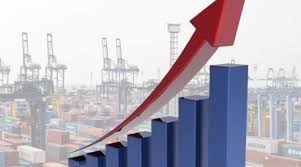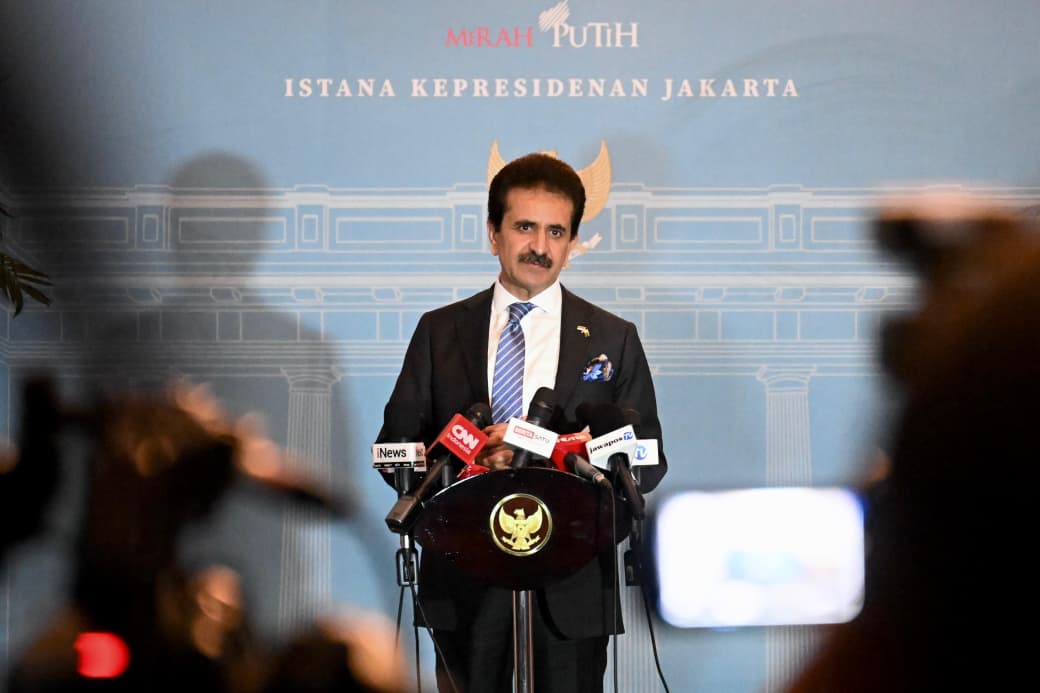Indonesia’s Economy Grows 5.05 Percent in 2023 Amid Global Challenges

Indonesia’s economy had grown by 5.05 percent in 2023 amid global economic slowdown, rising geopolitical tension, inflation risk, and climate change. In Q4 of 2023, the growth reached 5.04 percent (year-on-year/yoy) higher than the growth in Q3 of 2023 that was 4.94 percent.
According to Coordinating Minister for Economic Affairs Airlangga Hartarto, the figure, that is higher than consensus forecast for 2023 of 5.03 percent, is supported by increase in performance of several sectors. Construction sector recorded a 7.68 percent growth (yoy) and was the second largest contributor to the economic growth. The largest contributor was manufacturing industry that recorded a 4.07 percent growth (yoy).
The impressive growth in 2023 was also supported by household consumption that grew by 4.82 percent (yoy) and gross fixed capital formation (PMTB) that grew by 4.40 percent (yoy). In business sector, transportation and warehousing experienced a significant growth of 13.96 percent (yoy). Meanwhile, non-profit institutions serving households (LNPRT) grew by 9.83 percent (yoy), which was the highest growth among other expenditures.
The maintained growth in household consumption and PMTB, as well as the increased growth in the construction sector, were implications of the Government’s efforts to stimulate the national economy in Q4 of 2023. Those efforts were, among others, stimulus for housing sector through the Government-borne Value Added Tax (PPN DTP) incentive and the provision of administrative cost subsidies for low-income housing (MBR), social assistance to mitigate the impact of El Nino and maintain purchasing power, as well as acceleration of the distribution of people’s business credit (KUR) to strengthen micro, small and medium enterprises (MSMEs).
In general, Indonesia’s economy in all provinces were more robust. The largest contributor to the national Gross Domestic Products (GDP) was Java Island reaching 57.05 percent. Likewise, North Maluku province experienced a significant economic growth of 20.49 percent while Central Sulawesi province’s economy grew by 11.91 percent, which grow was supported by the performance of base metal processing industry as a result of the downstream policy.
With these various achievements, Indonesia was able to grow strongly and consistently at a high level compared to a number of other countries. The national economic growth throughout 2023 managed to exceed the growth of several partner countries such as Malaysia (3.77 percent) and the Republic of Korea (1.36 percent), and several G20 countries such as the United States (2.5 percent), France (0.9 percent), and Germany that experienced a contraction (minus 0.3 percent).
Indonesia’s national economic outlook is also considered to have more achievements in the future as reflected by the Indonesian manufacturing Purchasing Managers’ Index (PMI) that continued to remain at an expansionary level of 52.9 in January 2024. This also demonstrated optimism that the national economy is improving, and serving as a capital for achieving economic targets as the global economy is projected to improve.
“Based on current projections, various institutions, including the IMF, have predicted Indonesia’s economic growth in 2025, to achieve 5 percent; while the World Bank [predicts Indonesia’s economy] to grow between 4.9-5 percent, and the OECD at 5.2 percent; those figures exceed the average projection of global economic growth and above the economic growth of emerging markets such as China. Therefore, sustainable policies that will be taken are keys to future economic growth even though we are aware of future risks,” Airlangga said. (PR of Coordinating Ministry for Economic Affairs/UN) (RAS/MMB








